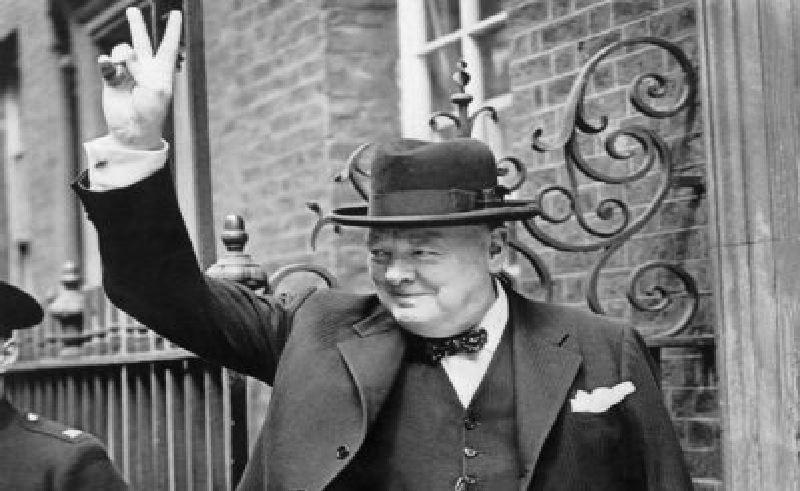In No More Champagne: Churchill and his Money David Lough has written a biography of our country’s greatest wartime leader with the focus on Winston Churchill’s personal finances. And Lough is going to share his shocking findings in a fascinating talk at Rye Arts Festival on Tuesday September 20.
Lough is a former financier in the City and has forensically searched a raft of records of Sir Winston’s financial affairs, including his tax records, and found that that Churchill fought a lifelong battle trying to balance his books.
Churchill’s problems were on both sides of the personal profit and loss account. He made good money, but never quite enough. And the only consistency of this expenditure was that it was always way over budget.
It appears Churchill – who wrote a begging letter to his mother asking for more cash on his very first day, aged 13, at Harrow as he had already spent his allowance – spent a lifetime spending money in order to maintain a lavish lifestyle that his income never matched. His was the curse of having been born at Blenheim as a junior member of the Duke of Marlborough’s family, giving him a certain station in society. But while he inherited the family name, he got none of the assets, such as a house and land, stocks and shares portfolio and fat bank account, that his relatives enjoyed.
Churchill spent a lifetime gambling, and naturally losing, large sums at the casinos of Europe. He was bailed out from impending bankruptcy in 1938 by the secret offices of a stable of mega-rich “friends”. And he didn’t just dabble in the financial markets, but dealt in shares and currencies with such a frenzy that Lough maintains “I have never encountered risk-taking on Churchill’s scale during my career”.
To put everything into some kind of perspective though, he earned large sums from journalism and writing and was still always on his financial uppers. Lough estimates that Churchill’s earnings as a war correspondent in the Boer War meant that he trousered the equivalent of £100,000 a month in today’s money – making Boris Johnson’s recent scribblings for The Daily Telegraph at £5,000 a month seem positively mean in comparison.
Anyway, Lough tells a fascinating story about how Churchill had to battle with far more than his demons (his self-styled “Black Dog” or depression) throughout his life from the onset of puberty to the grave. If anything, this perhaps makes his wartime leadership achievements even more remarkable.
Tickets for what promises to be a really fascinating talk, which will be at 3pm in the George, cost just £12 and can be booked online at or bought at the Box Office. And further details pf all the other literary events plus all the other events that make up this 45th annual Rye Arts Festival can be found at the site.
Photo: RAF



